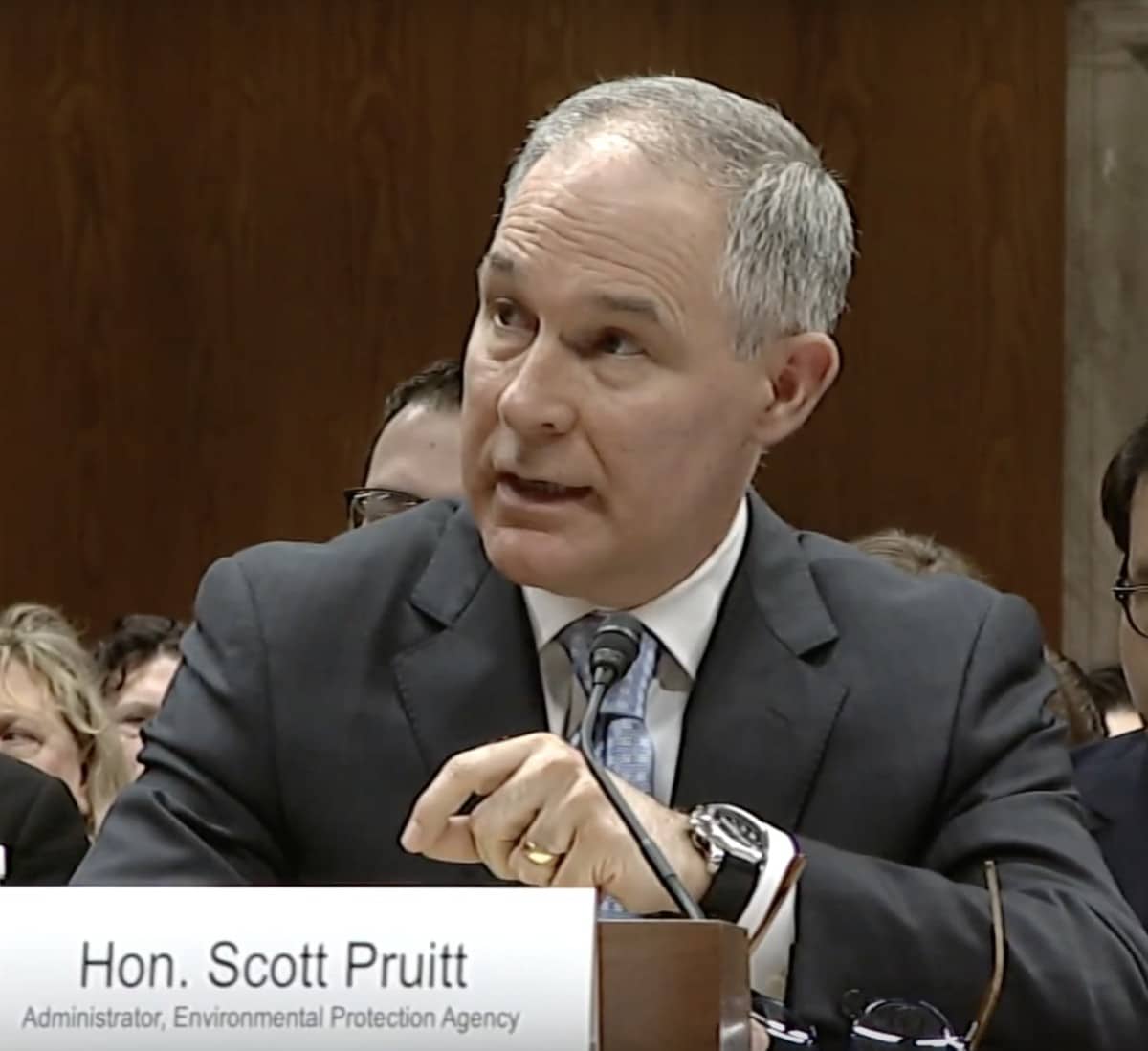U.S. Senator Cindy Hyde-Smith encouraged Environmental Protection Agency (EPA) Administrator Scott Pruitt to continue guiding the agency toward “a commonsense approach to the environmental regulatory process.”
Hyde-Smith questioned Pruitt on Wednesday at a Senate Interior Appropriations Subcommittee hearing to review the FY2019 EPA budget request. Hyde-Smith focused her attention on pesticide regulations affecting Mississippi agriculture and EPA Superfund activities on the Mississippi Gulf Coast.
“Good stewardship of the environment and our natural resources is necessary,” Hyde-Smith said. “I appreciate the direction the Trump administration EPA is taking to implement commonsense regulatory processes that are focused on results and not drawn-out punitive actions that stifle agricultural and industrial innovation.”
The Senate Interior Appropriations Subcommittee is scheduled to markup the FY2019 Interior, Environment, and Related Agencies Appropriations Act the week of June 11.
On the topic of Pesticides, Hyde-Smith commended Pruitt actions to return the agency to a risk-based and more predictable approach to regulating pesticides under the Federal Insecticide, Fungicide and Rodenticide Act (FIFRA), including establishing a new Office of Continuous Improvement (OCP) to improve the permitting and regulatory process for farmers and other stakeholders.
“Previous administrations have made the process of pesticide registration less predictable, and the sound science that has traditionally supported a risk-based approach to regulating pesticides has given way to politics and emotion,” said Hyde-Smith.
In a response to Hyde-Smith, Pruitt said the OCP is working to enable the EPA to streamline its permitting process.
“I mentioned permitting,” said Pruitt. “We didn’t even track the time period it took to grant or deny a permit before we arrived. And we marshaled that data together last year,” Pruitt said. “I know this will not be terribly surprising to members of the committee but it takes us a while to get through that permitting process, but we are setting goals and objectives to actually finish that in a certain time period. By the end of 2018, we will have processes in place to ensure decision are made within six months of the permits that we review.”
In regards to the Pascagoula Superfund and the Mississippi Gulf Coast, Hyde-Smith sought to ensure the FY2019 budget request included sufficient funding for the EPA to carry out its plans to expedite the cleanup of the Mississippi Phosphates Superfund Site in Pascagoula.
“The EPA should have the resources it needs to ensure the cleanup go as planned,” Hyde-Smith said. “This effort will not only benefit the City of Pascagoula and citizens of the Mississippi Gulf Coast but also protect some of the most productive nurseries for aquatic species that our fishing and recreational communities rely on.”
Pruitt said the effectiveness of Superfund activities is influenced on early remediation and coordination with state and local officials. He credited Pascagoula Mayor Dane Maxwell and the state for positioning the Pascagoula site for cleanup over the next three years.
Pruitt added that it is important for Congress to provide funding to support the Superfund, while the EPA pursues polluting companies to be held accountable for helping pay for site cleanups. The FY2019 budget request seeks $1.089 billion for the Superfund program, with another $109 million requested for the Brownfields Program.




